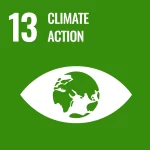Tuesday
5th November 2024
Dental Boardroom, The Superior University, Lahore




● Understanding the Concept of Sustainable Textiles.
● Exploring Innovations in Sustainable Textiles.
● Examining the Environmental Impact of the Textile Industry.
● Explore how sustainable textiles can contribute to fair trade and improve working conditions in the supply chain.
● Explore strategies for educating consumers about the benefits of sustainable textiles and how they can make more sustainable choices.
● Explore potential incentives and regulations that could encourage the adoption of sustainable practices.
● Identify the challenges faced by the textile industry in transitioning to more sustainable practices.
● Explore future trends in sustainable textiles and predict how the industry might evolve over the next decade.
● A discussion can increase awareness about the environmental and social issues associated with the textile industry, such as pollution, resource depletion, and labor exploitation.
● The panel could provide insights that inform policymakers about the need for regulations and incentives to promote sustainable practices in the textile industry.
● By promoting sustainable textiles, the discussion could contribute to the growth of the green economy, supporting industries and jobs focused on sustainability.
● Such discussions can contribute to setting global standards for sustainability in textiles, influencing practices not just locally but internationally.
● By advocating for sustainable practices, the panel can contribute to long-term reductions in the environmental impact of the textile industry, such as lower carbon emissions, reduced water usage, and less waste.
● Participants and the broader audience will gain a deeper understanding of sustainable textiles, including the environmental, social, and economic issues associated with the textile industry.
● Companies in the textile industry may be encouraged to adopt more sustainable practices, such as using eco-friendly materials, reducing waste, and improving labor conditions.
● The discussion could result in specific policy recommendations aimed at promoting sustainability in the textile industry, which could be presented to policymakers.
● The discussion could foster new collaborations between different stakeholders, including businesses, NGOs, government agencies, and researchers, to advance sustainability in textiles.
● The panel might inspire new research initiatives aimed at developing more sustainable materials, production processes, or business models within the textile industry.

